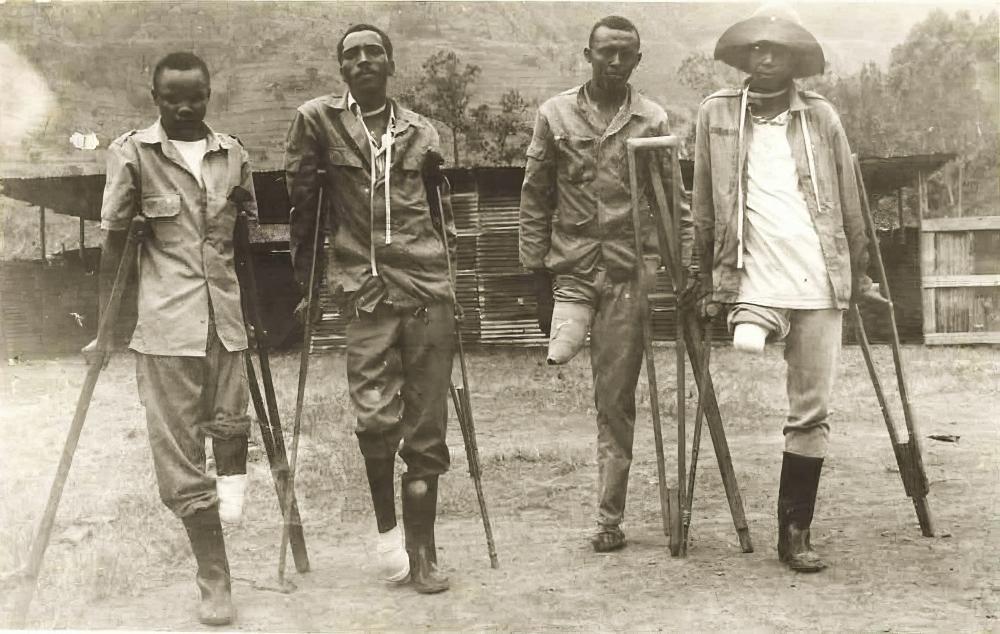Africa-Press – Rwanda. In Rwanda, patriotism has never been a mere word; it has always been a way of life, a value deeply woven into the nation’s history and culture, says Nicolas Rwaka, an official at the Chancellery for Heroes, National Orders, and Decorations of Honour (CHENO).
Rwaka, who is the Division Manager of Research on Heroism Outstanding Achievers and Decorations at CHENO, traces the evolution of this enduring value, revealing how love for the country has shaped generations of Rwandans.
“Patriotism is more than a value; it is a heritage passed down by our ancestors,” Rwaka explains in an interview with The New Times.
“For this nation to exist and thrive without being absorbed by neighbors, its sons and daughters have always been ready to sacrifice, to defend it, knowing that nothing in life is greater than their country.”
Nicolas Rwaka, Division Manager of Research on Heroism Outstanding Achievers and Decorations at CHENO
In pre-colonial Rwanda, patriotism and bravery were inseparable. To love one’s country was to defend it, often at the cost of one’s life. Historical examples abound: the Abatabazi, warriors who led battles knowing they might die for the nation, and the Abacengeri, scouts who gathered intelligence to protect Rwanda, both epitomized this spirit of selfless service.
Even in times of expansion, citizens understood that true love for the nation required action, ensuring security, growth, and the well-being of all. Those who accomplished great deeds were celebrated and rewarded through Itorero, the traditional school of values, where bravery, service, and dedication to the greater good were instilled into the nation’s soldiers.
Colonialism, however, disrupted this heritage, Rwaka noted.
“Colonizers deliberately targeted the values that could inspire unity, sacrifice, resistance, patriotism, heroism, and courage, stripping them of importance to weaken the ability of Rwandans to resist,” he explains.
Yet, even under colonial rule, the love for country persisted. Figures like King Mutara III Rudahigwa, who opposed divisions, and Michel Rwagasana, a national hero, exemplified true patriotism, standing against injustice even at great personal risk.
Rwaka explained that the 1990-1994 struggle to liberate Rwanda further highlighted the courage and unity embedded in patriotism. Rwandans who had fled during earlier years came together with those who remained in the country, fighting discrimination, poor governance, and oppression. Their commitment was not for personal gain but for the shared goal of a free and united nation.
The Rwanda Patriotic Front/Army (RPF/RPA) stopped the 1994 Genocide against the Tutsi and liberated the country from decades of ethnic divisions.
“Acts of heroism, rescuing those threatened by militias, protecting civilians during attacks, and enduring personal risk defined a generation and laid the foundation for Rwanda’s post-genocide recovery,” he said.
Today, patriotism has evolved but remains vital. Rwanda sees it in civic-minded attitudes, in practices that unite all citizens, and in efforts that promote development and good governance, he said.
“It is reflected in actions that allow the nation to progress inclusively, in attitudes that raise Rwanda’s profile internationally, and in practices that make Rwanda a model of security and governance,” he says.
He warns of challenges, particularly among the youth, who sometimes focus on quick personal gain rather than collective progress.
Patriotism, therefore, is not frozen in history, Rwaka explains. It evolves with each generation, demanding courage, service, and love expressed in both grand acts and everyday choices. For Rwanda, it is a living heritage, one that requires every citizen, especially the youth, to contribute to the nation’s ongoing journey toward unity, stability, and prosperity.
“Today, the value of patriotism is less about battlefield heroics and more about creating a society rooted in unity, equity, and progress. The challenge for the youth is to inherit this legacy, learning from the past while actively shaping Rwanda’s future,” he said.
From history to personal courage
For guidance, the younger generation can look to figures like Helene Nayituriki, a Catholic nun and former headmistress of Lycée Notre Dame de Cîteaux. During the 1994 genocide against the Tutsi, she risked her life to save over 150 students, teachers, and neighbors from militias targeting the Tutsi population.
Honored with a national medal in 2007, Nayituriki embodies a different facet of patriotism: love expressed through protection, care, and moral courage.
“Loving your country means protecting it from anything that could harm it, whether people or the land,” she told The New Times. “It means knowing your values, teaching them, spreading them, and making your country loved even by those who do not love it.
“Patriotism starts with love and care for others, honesty, unity of ideas, and leaving behind what is harmful while carrying forward what is good.”
Nayituriki extends this lesson to daily life, building strong families, choosing partners wisely, living peacefully, and respecting leaders and those who sacrificed for the country.
“Even simple acts of respect and responsibility contribute to national development,” she explains.
For More News And Analysis About Rwanda Follow Africa-Press






